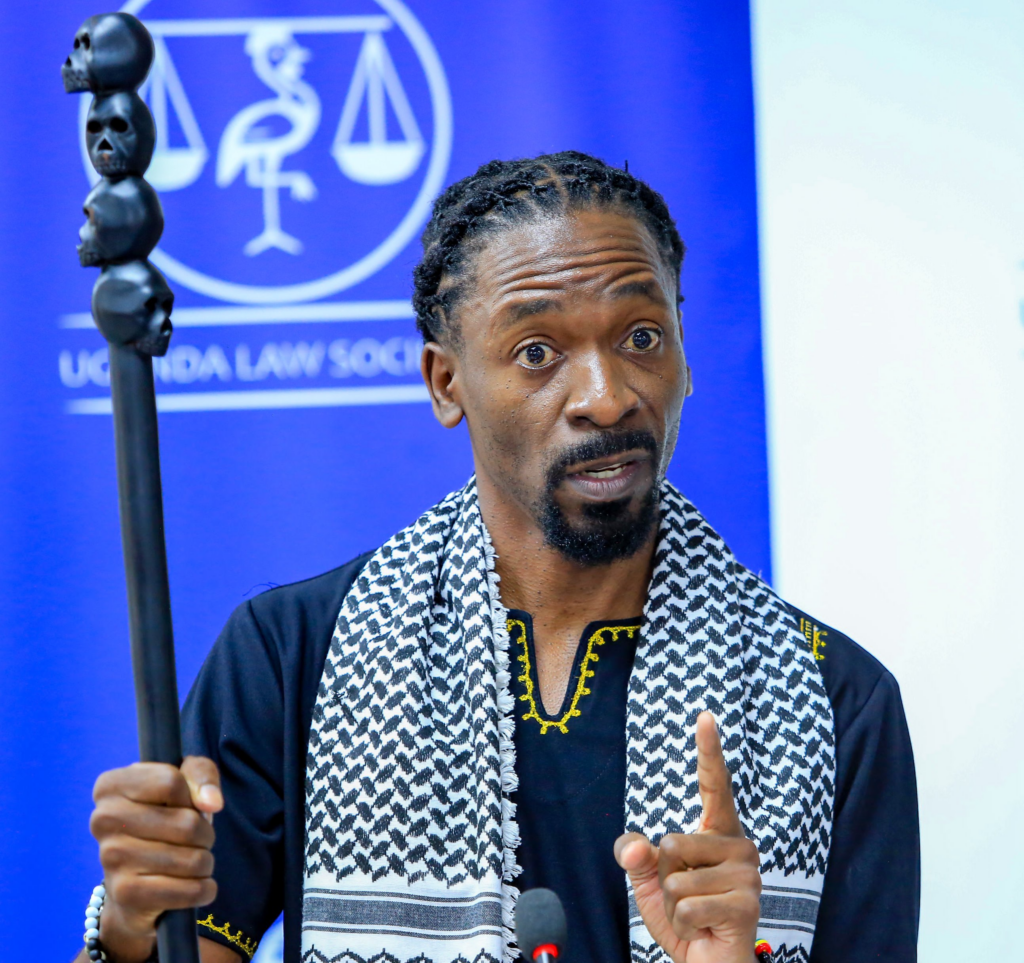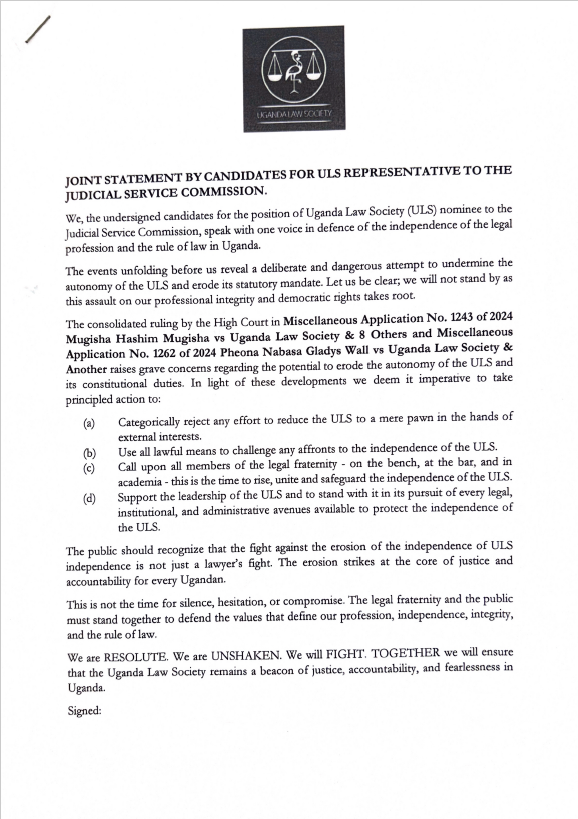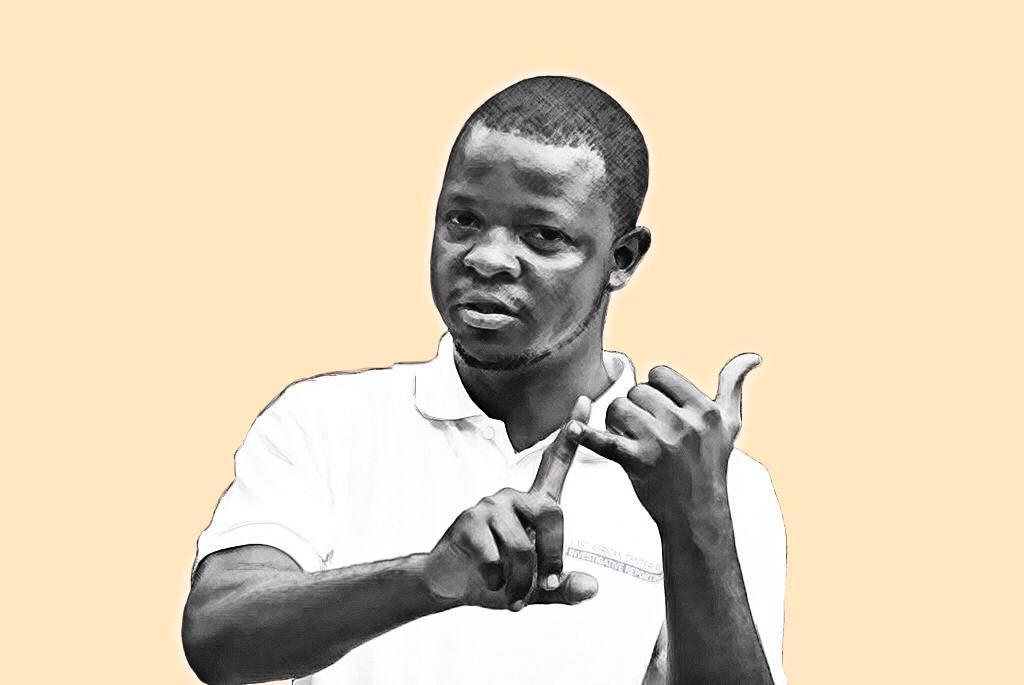The Uganda Law Society, a club of lawyers who have been sieved by the Law Council and licensed to practise law in Uganda, is going through change marinated in turbulence. There is a new ULS president in town and he is kicking tables like crazy.
Since the 1995 Constitution was promulgated, lawyers had never had the opportunity to elect their two representatives to the Judicial Service Commission (JSC), a body charged with gate-keeping who joins the judiciary and regulating the conduct of those who enter the service.
It’s always been a game of midnight sweetheart deals between the sitting ULS president and whoever was interested in the task. It pays at least Sh. 19 million in monthly allowances, a good source of passive income for any lawyer of 15 years standing, for a position that is not full-time. If one were to construct rental units (apartments) or set up a farm that can fetch an assured Sh. 19M monthly for eight years, the cost of investment would run in the billions of shillings. It makes sense, therefore, why ULS presidents were not keen in the past, to subject this process to democracy despite an enabling legal framework in that regard.
Thanks to the lawyer, Steven Kalali who challenged this shady state of affairs in court, Judge Boniface Wamala who interpreted the law right, and the new ULS President that withdrew the appeal by ULS in the Kalali case, members can now have a say through the ballot on who will represent them at JSC. The President of Uganda and Parliament will eventually have the last say. 14 lawyers, all with 15 years standing, including three Doctor of Philosophy (PhD) graduates from Makerere University’s School of Law, have thrown their hats in the ring. Soon, rather than later, elections which have been delayed by a High Court injunction, will ensue.

Listening to the candidates is both disheartening and boring yet eye-opening on the crisis that Uganda’s elite find themselves in. Each candidate has ably outlined the flaws in the Judiciary, the administration of justice and the court system. With flowery language as Mr. Frank Kanduho has done, some have captured the imagination of the electorate on what solutions they propose to improve JSC.
None of the candidates, however, has had the guts or nerve to articulate the real issues and strike at the heart of the matter in a manner that captures the JSC and its challenges through the spectrum of the wider political questions of the day.
Yes, some, may be many, judicial officers are corrupt. And lazy. And incompetent. And unethical. Some, however, perhaps many, judicial officers, stand out for their sheer commitment to the cause in all its manifestations. Our wonderful candidates swear that they will improve the gate-keeping function of JSC and ensure that no miscreant enters the hallowed gates of the judiciary. They will also tighten Bar-bench engagements, feedback mechanisms and public participation in vetting of candidates.
All these are great and sexy interventions. In fact, they make sense. However, our senior members of the Bar are missing the point either deliberately or simply by playing safe. With old age, as I have come to appreciate as the years fly by, comes caution and wisdom but also spinelessness.
Unlike the impression created by the ULS candidates, the JSC exists as a constituent element of a complex eco-system of a political and economic super structure. To present a campaign message that is lost on this reality is to glide in a fools’ paradise.

The National Resistance Movement (NRM) has done close to 40 years in power. With this hold on power, some things have, inevitably, had to give way, including the institutional autonomy and anatomy of the Judiciary.
The configuration and re-imagination of the state and institutions of the state in a framework that suits the political and economic aspirations of the ruling party has meant that the JSC is anything but an institution with capacity to operate outside that realm of real-politik. That it now matters less how brilliant, educated, ethical or experienced a judge or candidate for the position of judge might be but rather their commitment and loyalty to the establishment in its amorphous form and structure with varied interests, is neither a fault of the JSC nor a weakness that JSC can address. It is beyond the pay grade of the JSC but the candidates appear disinterested in interrogating and connecting these power dynamics. It feels like listening to a doctor whose diagnosis is anything but comforting. And yet, this in and of itself, is a function of another layer of problems among and affecting the elite class.
A vision of a better JSC, therefore, that is disarticulated from these political realities, how political power exerts exogenous and endogenous pressure on the institution, and how the institution reproduces power relations of and by the status quo, is utmost a campaign built on fallacy and fantasy.
Make no mistake, any and perhaps every ruling party (and class) at anyone point in time in anyone polity, will be keen to manage the levers of power and control the institutions of the law to their political and economic advantage. Law is, after all, always playing second fiddle to economics and politics and the political determines the legal. Never the other way around.
It is, however, possible for a ruling class to advance its interests in a manner that does not erode institutions, let alone, send them to the sickbay or worse still, intensive care unit. It is fair to say that the system is rusty not by mistake but by design but it is also reasonable to argue that the system can still be polished and by design serve the interests of the economics and politics of the day.
Present day Uganda has to contend with a justice system where some judges trade judgements for a pittance. Some judges who can hardly write intelligible decisions are charged with determining hefty matters as serious as commercial relations between the Government and private parties. In the end, even the Government is a loser in this institutional atrophy afflicting our justice system. President Yoweri Museveni has, on a number of occasions, publicly voiced out his concerns with the judiciary both in writing and speech. At one point, he lamented at how he had been reduced to a lobbyist as judges make ridiculous decisions that go against common sense and the law, let alone turn the scales of justice upside down. Some of these decisions affect investors and water down investor confidence in the market.
The Government has, on more occasions than one, been condemned to inflated court awards, in hundreds of billions of shillings in cases where it is apparent that the “judge ate”. What is the point, dear brethren? There are no losers and winners in watching state institutions lose their fabric.
In Kampala today, it is not enough to have a good case and a good lawyer. As lawyers, we sometimes ask, “who is the judge?” and not “what is the law?” on listening to or reading facts of a case.
Everything that can go wrong with a country’s justice system has gone wrong. There are a few good things happening in this space. Some parts of Uganda, which for the entire existence of the human race had never had a High Court judge, now have High Court circuits. Look at Karamoja. Distances of hundreds of kilometers have been cut considerably thanks to extending the court system nearer to the people. Our judicial officers today earn and are facilitated better than their counterparts in many parts of Africa. There has been adaption of technology in some court processes despite inconveniences we suffer every so often adapting to the new ways of doing things such as filing court papers online. Our judges can retire today and not worry about falling back to penury thanks to an enviably generous retirement package that allows them continue earning a fraction of their salary even in retirement and full salary for the bigger fish in the pond.
These developments, commendable as they may be, do not, however, save the day. When the very essence for the existence of the judiciary, which is the administration and dispensing of justice, is punctuated by corruption, laziness, loss of public trust and confidence, abuse of power, impunity, favoritism, incompetence and outright thuggery, then the soul is dead. The body is everything but lifeless for without the soul, there is no business here. Someone please turn off the lights.
There is, one can say, a real crisis in the judiciary in this regard. Men and women who are more deserving helplessly watch junior colleagues with less accomplishment let alone respect both in the Bar and on the Bench, jump the queue, simply because they are better-gifted as bootlickers and sycophants or know better from which boardrooms and bedrooms to find favour for promotion or appointment.
As the great Lee Kwan Yew’s story of Singapore’s journey from a third world to a first world country in one generation demonstrates, a nation’s greatest asset is its human capital. The best potential and value of that resource is best exploited and extracted through a merit-based system with predictable and certain rules of engagement. To achieve that however, the reform process does not start with JSC and it matters less how many well-meaning Chris Mbaziras, Paul Mukiibis, Alex Rezidas, Diana Nabuusos, Patricia Atims, Milton Ocens, etc, you pack at the JSC. It matters most what the political situation is and the balance of forces at play. Currently, without speaking to and deliberately working towards attaining a fair place in the balance of forces in the wider political trajectory of the country, the candidates’ promises are nothing but romanticized nursery school rhymes. Like nursery school children singing their innocent hearts out, our candidates cannot dare face the bogeyman. It stares at them menacingly. Haunts them. Shakes the ground on which they stand. That bogeyman is the crisis of a moribund political establishment that is neither determined to reform nor capable of reform. The candidates have cited the Kenya precedent and the reforms there that happened. Those reforms did not happen in a vacuum. They happened post President Daniel Arap Moi. They happened post KANU. There was effort by the Kenya Law Society to feed into the environment that allowed those reforms to happen. Similarly, the reforms of South Africa’s judicial system post 1994 did not happen in a vacuum. They happened post-apartheid under the 1996 constitution of a Rainbow nation designed to aspire for a democratic, non-racial and non-sexist system. Listening to our candidates for the JSC, they appear to assume that these reforms can happen in spite of the political context and environment. Some, are clearly out of their depth and sound, in argument and articulation, as innocent as a child incapable of connecting these dots. The more knowledgeable and articulate ones are swiping the safety and caution card, keeping mum on the irreducible bare-minimums for any serious change at JSC and the judiciary to happen. Therein lies the crisis of the elite in Africa.
The merit system in the judiciary has been sacrificed at the altar of politics. This presents a number of challenges in the long run and not only demoralizes public servants but also kills institutional culture, ethos and value system. In the end, even the ruling party does not benefit from a rogue judiciary. Like a snake, it can bite the snake-keeper or owner as the recent presidential lamentations have shown whenever judicial over reach and abuse of power has worked against the establishment. The economy too takes a beating as investors prefer to sign agreements whose dispute resolution clauses have arbitration in foreign capitals.
Back to our JSC candidates’ race. The 14 lawyers aspiring to represent the Bar at the JSC appear to be detached from the big elephant in the room. The political conundrum that Uganda finds itself. Their half-clever attempt at saying everything wrong with the Judiciary and making no connection of that “everything wrong” to the state of affairs in town, is also a phenomenon that can be explained in another article. What is true however, is that candidates playing safe and cautious to gain office appear both out of their depth on the nexus between the political situation in the country, the crisis of and in the judiciary and the role and place of JSC in that cobweb. This political awareness or consciousness can only receive expression from the elite members of the Law Society if those members are truly committed and ready to make the sacrifice, to build a better country which then begets and engenders a better JSC. For now, it is another movement of musical chairs coated with high-sounding nothings.

Ivan Okuda is a lawyer and writer









